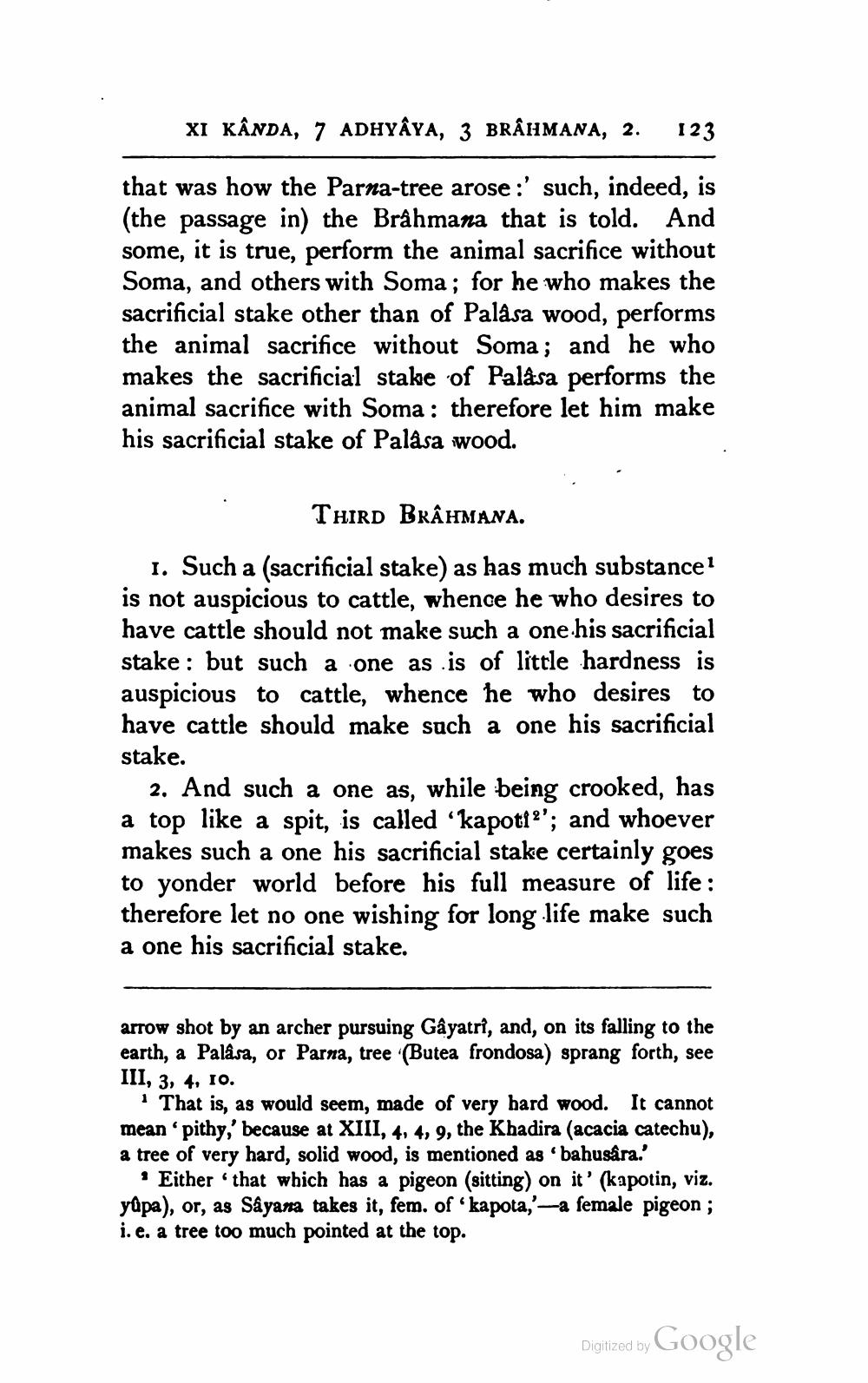________________
XI KÂNDA, 7 ADHYAYA, 3 BRÂHMANA, 2.
123
that was how the Parna-tree arose :' such, indeed, is (the passage in) the Brahmana that is told. And some, it is true, perform the animal sacrifice without Soma, and others with Soma; for he who makes the sacrificial stake other than of Palasa wood, performs the animal sacrifice without Soma; and he who makes the sacrificial stake of Palasa performs the animal sacrifice with Soma : therefore let him make his sacrificial stake of Palasa wood.
THIRD BRAHMANA.
1. Such a (sacrificial stake) as has much substance! is not auspicious to cattle, whence he who desires to have cattle should not make such a one his sacrificial stake: but such a one as .is of little hardness is auspicious to cattle, whence he who desires to have cattle should make such a one his sacrificial stake.
2. And such a one as, while being crooked, has a top like a spit, is called “kapotie'; and whoever makes such a one his sacrificial stake certainly goes to yonder world before his full measure of life: therefore let no one wishing for long life make such a one his sacrificial stake.
arrow shot by an archer pursuing Gâyatri, and, on its falling to the earth, a Palasa, or Parna, tree (Butea frondosa) sprang forth, see III, 3, 4, 10.
That is, as would seem, made of very hard wood. It cannot mean 'pithy,' because at XIII, 4, 4, 9, the Khadira (acacia catechu), a tree of very hard, solid wood, is mentioned as " bahusara.'
• Either that which has a pigeon (sitting) on it' (kapotin, viz. yapa), or, as Sâyana takes it, fem. of 'kapota,'-a female pigeon ; i.e. a tree too much pointed at the top.
Digitized by Google




